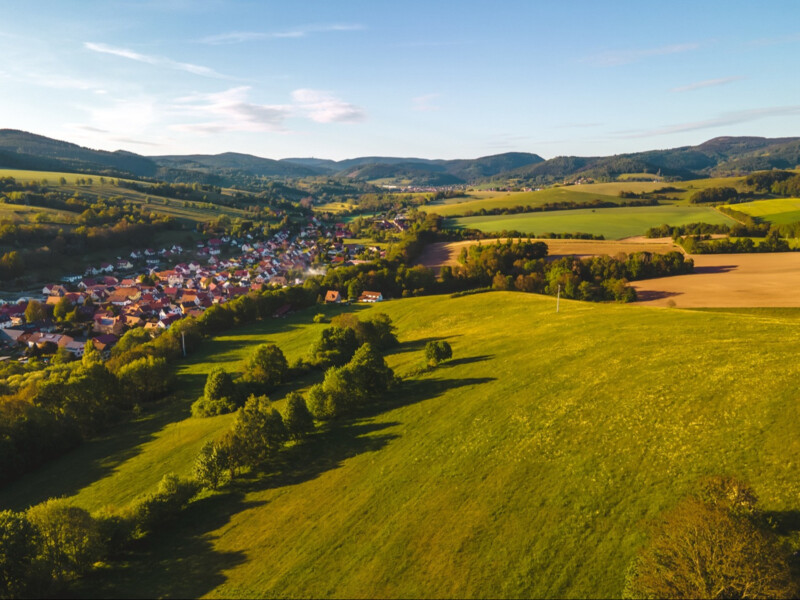Depuis le 1er juillet, le nouveau dispositif France Ruralités Revitalisation (FRR) remplace les anciennes Zones de Revitalisation Rurale (ZRR). Ce zonage repensé a pour but de dynamiser les territoires ruraux en difficulté en offrant aux entreprises qui s’y installent des avantages fiscaux et sociaux attractifs.
Maintenir l’aide au développement des territoires ruraux
La réforme des zones de revitalisation rurale (ZRR) a été adoptée par la loi de Finances pour 2024. En vigueur depuis le 1er juillet, avec un nouveau zonage appelé « France Ruralités Revitalisation », elle a pour objectif de renforcer l’attractivité des territoires ruraux en accordant des exonérations fiscales et sociales (exonérations d’impôt sur les bénéfices, de cotisation foncière des entreprises et de taxe foncière sur les propriétés bâties) aux entreprises qui s’y implantent.
Les zones FRR apportent aussi un soutien aux collectivités via :
- une majoration de la dotation globale de fonctionnement (bonification de 30 % de la fraction bourg-centre et de 20 % de la fraction péréquation de la dotation de solidarité rurale),
- une bonification de la dotation France Service,
- la facilitation d’ouverture d’officines,
- une majoration au titre de la péréquation postale.
Deux niveaux de zonage FRR
Concrètement, France Ruralités Revitalisation se substitue aux ZRR, aux bassins d’emploi à redynamiser (BER) ainsi qu’aux zones de revitalisation des commerces en milieu rural (ZORCOMIR).
La réforme prévoit deux types de zonage :
- Les zones FRR ou FRR « socle » : elles concernent les communes de moins de 30 000 habitants situées dans un établissement public de coopération intercommunale (EPCI), un département ou un bassin de vie répondant à certains critères de densité et de revenu de population ;
- Les zones « FRR+ » : elles sont dédiées aux communes en difficulté. Ce type de zonage interviendra à compter de 2025.
Ces zones sont délimitées sur la base de la densité de population et du revenu disponible par habitant. Le zonage est soumis à révision tous les 6 ans.
Pour connaître la liste des communes en zone FRR et celles en ZRR, il convient de se référer aux arrêtés du 19 juin 2024 ou au simulateur.
Des avantages pour les entreprises en zone FRR
Comme évoqué précédemment, les entreprises implantées dans les zones FRR pourront prétendre à des exonérations fiscales et sociales.
Pour être éligibles aux exonérations fiscales, elles doivent :
- Employer moins de 11 salariés ;
- Exercer une activité industrielle, commerciale, artisanale ou libérale ;
- Être créées ou reprises entre le 1er juillet 2024 et le 31 décembre 2029.
Ces exonérations s’appliquent pendant 5 ans intégralement, puis de manière dégressive les trois années suivantes.
Pour être éligibles aux exonérations sociales, elles doivent :
- Employer moins de 50 salariés ;
- Exercer une activité industrielle, commerciale, artisanale, agricole ou non commerciale ;
- Embaucher dans un établissement situé en FRR ;
- Ne pas avoir licencié pour motif économique dans les 12 mois précédant l’embauche.
Pour faciliter leur gestion financière et administrative, ces entreprises devront également envisager l’ouverture d’un compte bancaire professionnel adapté à leurs besoins spécifiques. Pour savoir si une commune est située en FRR ou ZRR, il est également possible d’utiliser le simulateur en ligne mis à disposition sur le site du service public.
